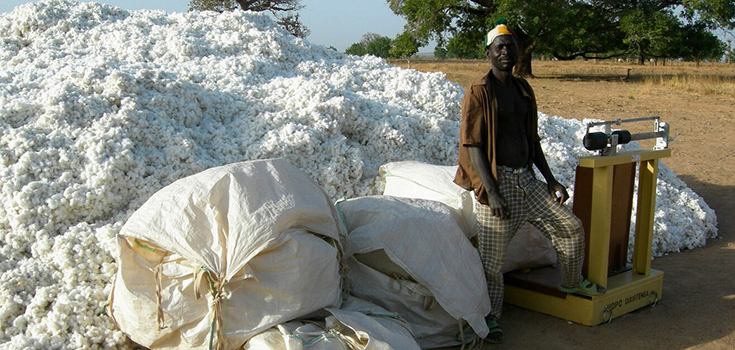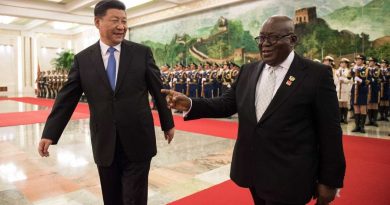Burkina Faso Refuses GMO Bt Cotton Ruining Biotech’s Plans
In a move that will likely upset Biotech’s long-term plans for Africa, the African country Burkina Faso has abandoned genetically modified Bt Cotton crops in order to phase out inferior quality GM crops for non-GM crops.
The biotech industry has been claiming that Bt cotton would be an ideal crop for poor farmers, stating, “Bt cotton varieties have been adopted by commercial and smallholder farmers in several developing countries, including China, South Africa, and India,” all the while singing the crops’ praise.
But a different tune has been developing, exposing the GM crops to be a bad investment. In fact, the UK’s environment minister has claimed that GM crops are necessary to help address hunger in developing countries, and that it would be immoral for Britain not to help developing countries to take up GMOs. The US has had a similar stance, as has the UN and WHO. Countless small-scale farmers in Africa would disagree, though.
African farmers and civil society have repeatedly rejected GM crops, and asked their governments to ban them. The Bill and Melinda Gates Foundation has been actively pursuing Africa for GM crop testing, as well, dumping grant money where they can find a foothold.
But a new briefing published by Brian Dowd-Uribe, Assistant Professor in the International Studies Department at the University of San Francisco and Matthew A. Schnurr, Associate Professor in the Department of International Development Studies at Dalhousie University, describes exactly why GM cotton and other crops are not what Africa needs at all.
The professor’s briefing describes the rapid decline of Burkina Faso’s cotton crop following the introduction of GM Bt cotton. At the time, Burkinabè cotton was renowned for its high quality, the product of a highly successful non-GM breeding program founded by the French government and spanning 70 years.
In just a few years, since Bt GM cotton has been introduced, farmers have experienced high yields, but of a substandard cotton product. Previously, before Bt cotton, African cotton had a high ginning ratio (the percentage of the desired cotton fiber per unit weight of cotton delivered to the factory) and long staple length. This is now absent from the Bt cotton harvested. The ginning ratio remains well below the 42% achieved by non-GMO cultivars.
For Burkina Faso’s farmers, it has become clear that focus on yields alone are not the defining factor of a crop’s success. The yield in Burkina Faso was high with Bt cotton; in the most recent growing season, it produced over 700,000 MT of cotton, while neighboring Mali produced only 500,000 MT. Yet within a few months, Mali’s entire product had been sold on the international market, while most of Burkina Faso’s languished awaiting export. One high-ranking official lamented:
“What is the point in being the top producer if you can’t even sell your cotton?” For these reasons, the country will slowly phase out Bt cotton, even while Monsanto tries to introduce new strains of Bt cotton into Africa. Burkina Faso companies plan on reduce the amount of Bt cottonseed on the market from 53% in 2015/16 to 30% in the 2016/17 growing season, with the goal of a complete return to non-GM cotton in time for the 2017/18 season.




